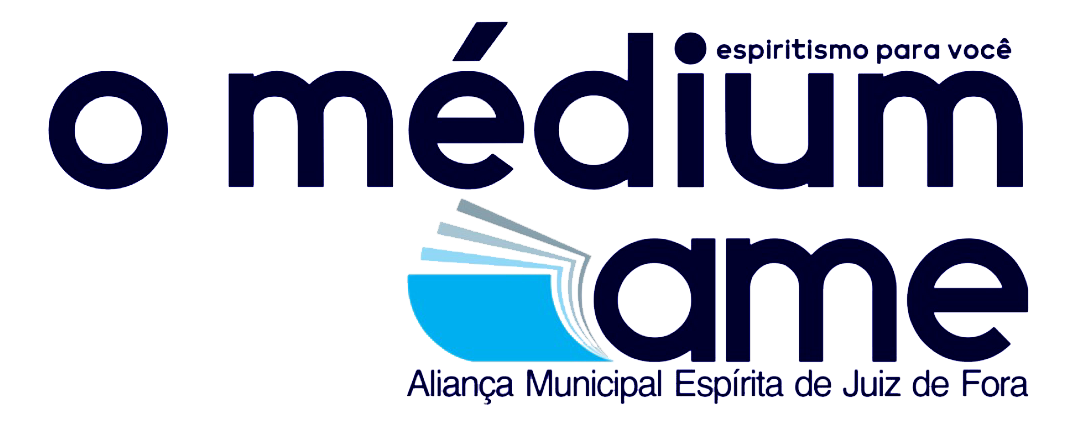Bóris and the Law of Action and Reaction
Roni Ricardo Osorio Maia
Based on the two parts of the narrative Law of Action and Reaction, from the book A eterna mensagem do monte, dictated by Leon Tolstoy to the medium Célia Xavier de Camargo, here is a summary.
As described by the spiritual author, Boris Tchernigov lived in Russia, on a prosperous agricultural estate with grain plantations that had provided him great wealth. One morning, an unusual visit took place while the wealthy landowner was meditating, gazing at the snow-covered mountains surrounding his land and the sky with its glowing sun. A humble worker named Pietr, the peasant (muzhik), got into the private quarters. The master reprimanded him by his presence there. The worker was asking for a financial advance to take his sick, feverish son to a nearby village for medical treatment.
The wealthy master was irritated by the servant’s intrusion into his private space. Despite the poor man’s persistent pleas, he dismissed him aggressively and authoritatively, sending him off to the fields. Frustration overwhelmed the worker, and he considered retaliating against the arrogant and haughty landowner. However, he managed to quell his violent impulse and went back, devastated, to his home.
There, he found his wife in distress over their son’s, a seven-year-old boy, fever—Nikita. At that moment, a storm swept through the area, making it impossible for him to seek help from others. His wife then prepared herbal tea for their son. The boy recovered a little, spoke to his father, soothing him, and reminded him of Christian teachings, such as forgiveness, that he had once heard from a priest who stayed in their home on another occasion.
The father prayed fervently before the image of Our Lady of Kazan. Inspired, the son told his father about the beautiful lady he had seen, whom he identified as the saint. However, it was Nikita’s farewell—he stopped breathing shortly after, much to his parents utter despair. The grieving parents were devastated by the loss of their young boy, and a feeling of revolt overcame Pietr.
He received the villagers, who came to console the family. Even Boris’s wife visited the humble home to offer her condolences to the grieving parents. However, the master of the estate refused to express any solidarity with the family. The peasant withdrew into his home, but four days later, he returned to the fields with a firm decision: to take revenge on the landowner’s neglect by murdering the rich man’s young son.
Pietr approached the Tchernigov estate, observing young Igor and gradually befriending the boy. On another occasion, he invited the little one for a walk down the river to watch the fish. His true intention was to push the child into the current. At that moment, however, Pietr saw a mist emerging from the water—it was the materialization of Nikita, who pleaded with him not to commit such a grave sin.
The father heeded his son’s plea and while deeply remorseful for the dark intentions that had taken hold of his conscience, dropped his vengeful plan. He safely returned Igor to his family, who had been anxiously searching for their missing son. Igor then told how he had gone for a walk and was saved by the muzhik when he almost fell into the river while watching the fish.
After his masters expressed their heartfelt gratitude for saving little Igor, Pietr had a change of heart. He let go of his resentment and was finally acknowledged by Boris Tchernigov. The desire for revenge that had once consumed his thoughts faded away, and he abandoned his intention of avenging his son’s death, trusting the Divine Justice.
Years later, in 1968, the saga continued with the story of a Russian man living in Brazil, whose family had fled their homeland during the Bolshevik Revolution (1917). He was a poor worker, living in a humble shack in a favela in Rio de Janeiro. This man was actually Boris Tchernigov, reincarnated as Bóris. The era was one of political repression in Brazil. Having escaped Soviet communism, Bóris now had to make sure to navigate his new life carefully, ensuring that he did not compromise himself in his new country.
At work, his boss had a good relationship with the military, which made Bóris’s life in Brazil easier. However, his family was struggling with hunger, and Bóris could not accept such life, often feeling enraged by their situation. One day, while returning home from work, he found his son burning with fever. Desperate, he left the favela to seek out help from his employer, who lived in a wealthy neighborhood in Rio’s South. He walked the long way until he reached the luxurious mansion, which happened to be hosting a grand party that night.
At the gate, he persuaded the doorman to call his affluent boss. However, the businessman received him harshly, scolding him for showing up outside working hours. At no point did he show any concern for the sight before him—a desperate worker holding his feverish child in his arms. Indifferent to ir, he dismissed Bóris and sent him away from his lavish estate.
Devastated, Bóris felt an overwhelming urge to retaliate and attack the heartless man, but he restrained himself. Holding his sick son in his arms, he walked along the seaside avenue, his body exhausted and his spirit humiliated. Despite his suffering, he summoned both physical and moral strength for the long journey ahead. It was then that he decided to pray, sincerely pleading with God for help for his frailed son.
He was walking towards the suburbs of Rio de Janeiro and was surprised to see a house with a very bright light for that time of night. He decided to ask for help. It was a spiritist institution, and Bóris knew about the relationship between spiritists and charity. It was the first time he had entered a spiritualist house. He glimpsed the lecture room and the organized chairs, the table at the back and the books on the shelves. On the board, he read the phrase: without charity there is no salvation.
As he made his way toward the suburbs of Rio de Janeiro, something unexpected caught his eye—a house with a very unusually bright light for late night. Curious and desperate, he decided to ask for help. It turned out to be a Spiritist institution, and Bóris was aware of the solid relation between Spiritists and charity. For the first time in his life, he stepped into a Spiritist institution. His eyes glimpsed the lecture hall, the neatly organized chairs, the table at the back, and the books on the shelves. On the wall, a phrase caught his attention: “Without charity, there is no salvation.”
Encouraged and hopeful, Bóris met a kind and friendly man called Pedro, who immediately offered to help after noticing the boy’s fever. A doctor was among the volunteers at the Spiritist center, and the necessary medication was quickly provided. Suspecting pneumonia, they all headed to the hospital. The new Spiritist friends generously paid for the child’s hospitalization. Deeply touched, Bóris recognized the divine assistance answering his prayers as a distressed father.
The Russian man gratefully thanked his generous benefactors for their kindness—thus, a beautiful friendship between Pedro and Bóris began. Once again, the two Spirits from the beginning of the story were reunited. Pedro had the impression that he already knew Bóris, and both men experienced a strong feeling of déjà vu**.
Based on doctrinal essence, Leon Tolstoy describes this reunion, knowing that many debtors are around the globe in fraternal reconciliations. Boris Tchernigov, the cruel and despotic landowner, reunited, in another situation, another time and another place, with the mujique Pietr, whom he had wronged in the past. The humble worker had long since forgiven his boss from the bottom of his heart, a sign of progress. Meanwhile, the Russian Boris Tchernigov was facing the consequences of his past actions, having the opportunity to redeem himself before Divine Justice and to suffer in the same way that he had suffered, through the Law of Action and Reaction (Newton’s third law applied spiritually).
Drawing from the essence of Spiritist doctrine, Leon Tolstoy describes this reunion, knowing that many souls, indebted to each other, seek reconciliation on Earth. Boris Tchernigov, the once cruel and despotic landowner, now reunited in a different time, place, and situation with the humble muzhik Pietr, whom he had wronged in the past. Long ago, the modest worker had sincerely forgiven his master, as a sign of his spiritual progress. Meanwhile, Boris Tchernigov now faced the consequences of his past actions, given the opportunity to redeem himself before Divine Justice, experiencing the same suffering he had once inflicted—an example of the Law of Action and Reaction (Newton’s Third Law applied spiritually).
After what happened to his son, Bóris embraced Spiritism, becoming a better person and revealing a renewed man. He began treating everyone with kindness, was promoted at work, gained more stability to provide for his family, and, most importantly, came to understand the reasons behind the trials he had previously misinterpreted due to a lack of knowledge.
His family also joined in the work of the Spiritist center and Bóris never forgot to thank God for the opportunity to get to know this source of light, the Doctrine of the Spirits, which had transformed his life and that of his family. Bóris also understood Jesus’ message and the meaning of love of neighbor.
His family also joined the activities at the Spiritist center, and Bóris never forgot to thank God for the opportunity to discover this source of light—the Spirits’ Doctrine—which had transformed his life and that of his loved ones. He also came to truly understand Jesus’ message, grasping the deep meaning of loving one’s neighbor.
* In the Russian version, the name Boris is unaccented, but in the Brazilian version, the name is accented.
** A form of memory illusion which leads the individual to believe that they have already seen (and, by extension, lived through) something or a situation which is unknown or new to them; paramnesia.


